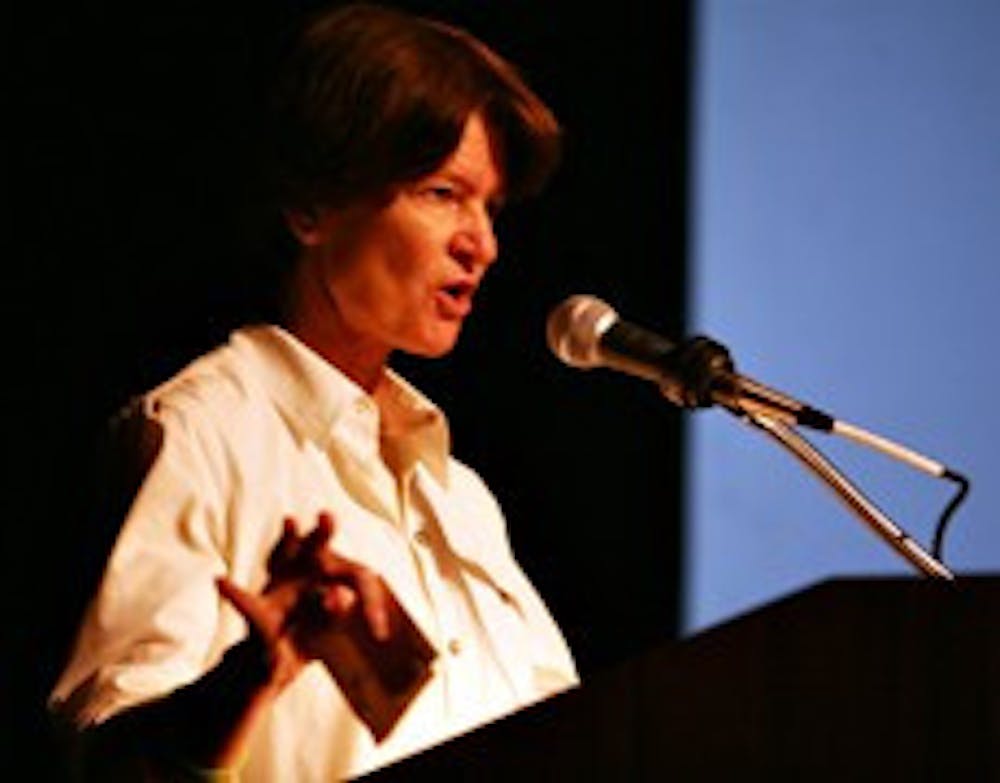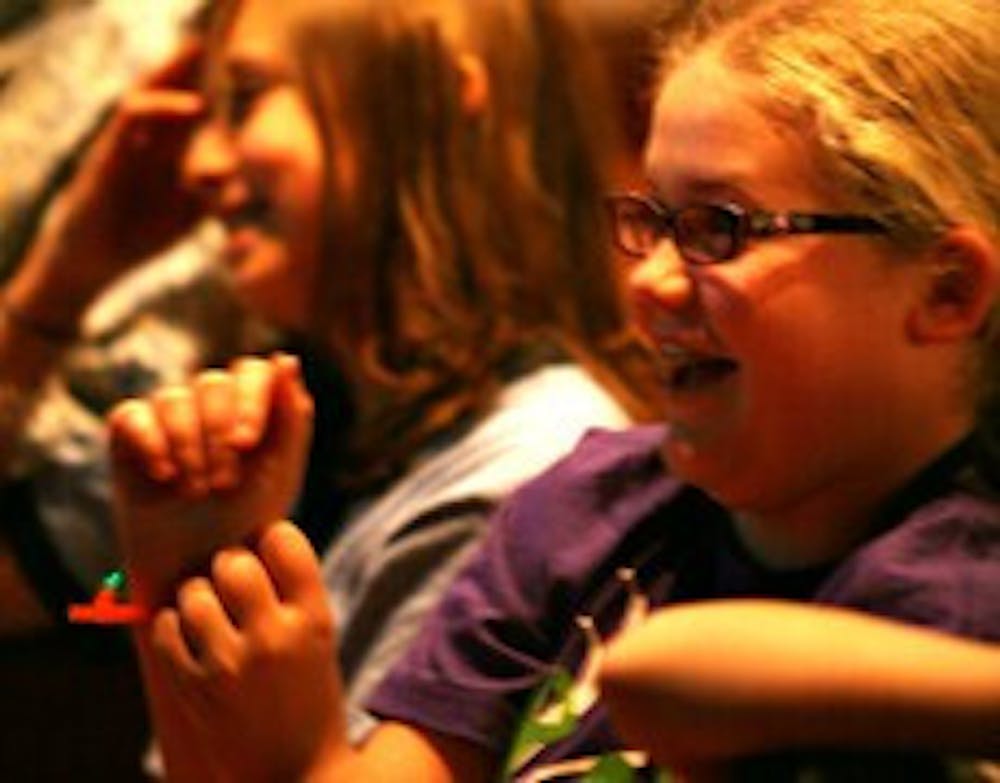Sally Ride, the first American woman in space, told young Arizona women Saturday afternoon that there's a place for them in math and science.
Ride spoke to a crowd of more than 100 participants at the Sally Ride Math and Science Festival at ASU, an event put on through Barrett, the honors college, intended to inspire Arizona youth to pursue math and science careers.
"There are lots and lots and lots of opportunities for you in science," Ride said. "You are at a point in your lives where you are building the foundation to take advantage of those opportunities."
Saturday's festival — which takes place in cities throughout the U.S. — was the seventh one at ASU. More festivals have been held at the University than anywhere else.
"The hospitality is as good or better than any other place we go," Ride said.
The event began with a street fair on the lawn of Gammage auditorium where attendees could participate in a number of science-related activities, including making bracelets with beads, representing their genetic traits.
Street fair presenters included the ASU School of Earth and Space Exploration, the Global Institute of Sustainability and the Phoenix Astronomical Society.
"It's great because they get to meet female role models — women who are actually in science," Ride said.
Ride herself signed autographs and met attendees during the street fair.
Eleven-year-old Jamie Berkeley was among the festival participants. She said meeting Ride was the highlight of her weekend.
"I want to go into space, too, if I can," she said. "That's why it's so cool to meet Sally, because she's a girl like me, and she got to go [to] space."
Ride spoke after the street fair, giving a presentation of photographs taken from space by shuttle crewmembers, including herself.
After Ride's speech, festival participants attended various workshops demonstrating science concepts.
Ride, who teaches science classes at Stanford University, said the festival is especially important because there are still stereotypes that keep women out of certain kinds of science, especially physics and engineering.
"In biology and chemistry, there are a lot of women — it's about 50-50," she said. "In physics and engineering, it's maybe 25 percent or 15 percent. There's still this kind of image that engineering is for guys."
Alexis Taylor, a math junior, volunteered at the festival. She said she was excited to help encourage girls to change these stereotypes.
"As you get higher in school, it's more likely that you'll be the only girl in your class if you're in math," she said. "It's just so good to see these girls so excited about math and science because maybe they'll stick with it."
Reach the reporter at: emma.breysse@asu.edu.





